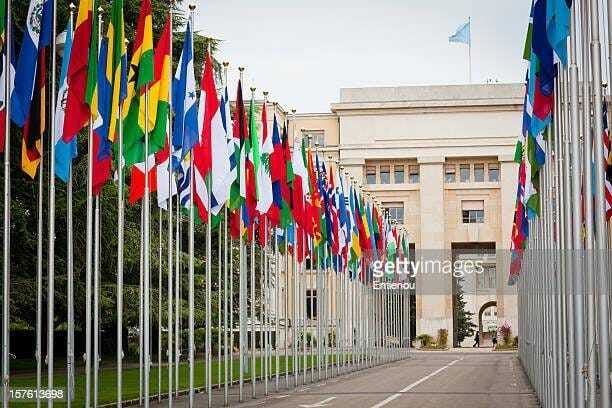
China has used the month of March, 2021 to score brownie points in its domination war with the United States, even managing to set up a separate group of member states within the United Nations bound by the common thread of being “sanctions victims” of the US of A.
A series of diplomatic moves sanctioned by the Chinese Communist Party (CCP) this March have sought to manoeuvre China into a leadership position in spite of the presence of big bear Russia.
The United States has maintained a calculated silence so far, appearing not to give credence to these moves.
In March last week, China led 18 member-states of the United Nations in forming the “Group of Friends in Defense of the Charter of the United Nations”, seeking to promote “multilateralism” and “diplomacy over the use of force against perceived violations from other UN member states”.
The move comes close on the heels of US President Joe Biden steering American foreign policy away from President Trump’s America First policy to multilateralism.
The members of the group are: Russia, Iran, North Korea, Algeria, Angola, Belarus, Bolivia, Cambodia, China, Cuba, Eritrea, Iran, Laos, Nicaragua, North Korea, Russia, Saint Vincent and the Grenadines, Syria and Venezuela. The State of Palestine is a UN non-member observer state.
What is common to them all except a few is the United States has imposed various kinds of sanctions against them or their citizens.
The US has sanctions against the following countries: Iran, North Korea, Syria, Cuba, Venezuela and Turkey. The US has imposed sanctions against certain persons of the following countries: Belarus, China, Russia. Eritrea is subject to restrictions to being placed as tier 3 countries in the United States Trafficking in Persons Report. Some of them were also on the State Sponsors of Terrorism List. All of them are on the human rights violations list.
The group commits to promote and “defend” the UN Charter and specifically, the following principles: "non-interference in the internal affairs of States, peaceful settlement of disputes, and to refrain from the use or threat of use of force against the territorial integrity or political independence of any State, as enshrined in the UN Charter".
There is no further clarity on how the group proposes to save the UN Charter, though the logistics related to group meetings have been worked out.
None of the signatories has sought to clarify if they have formed a “pressure group” considering that a common dislike of the US sanctions binds them all.
The group, originally established in 2019, has been activated only now. The signatories expect confirmation from all of them by the end of April.
A couple of days before Newsweek broke the group story, China made headlines by joining Russia on March 23 to propose the setting up of a new “regional security dialogue platform” to tackle security concerns in the region.
This is clearly seen as a counter to the Quad Initiative involving the United States, Australia, Japan and India.
The ire of the two countries is directed more at the United States which they blamed for “forming small circles to seek bloc confrontation”.
The development came about at a meeting between Chinese foreign minister Wang Yi and Russian foreign minister Sergei Lavrov in the Chinese city of Guilin. It took place exactly a week after the March 19 Alaska Summit of the US and China and the March 12 Quad Summit.
The ministers said in a joint statement: “The international community believes that the United States should reflect on the damage it has done to global peace and development in recent years, halt unilateral bullying, stop meddling in other countries' domestic affairs, and stop forming small circles to seek bloc confrontation.”
The same week, China sought to challenge the United States once again by signing an economic and security cooperation agreement with Iran which stands battered by continuing US sanctions. Chinese foreign minister Wang Yi travelled to Teheran to ink the deal with his Iranian counterpart Javad Sharif.
Both sides called the agreement a “strategic partnership” that will last for 25 years. The details are not yet known, but it is assumed China would get a steady supply of Iranian oil in lieu of Chinese investments in projects ranging from nuclear energy, ports, railroads and other infrastructure to transfer of military technology and investment in Iran’s oil-and-gas industry, according to the Wall Street Journal.
The confrontational stance of China began early January this year when China issued its own rules to protect its companies from US sanctions.
Bloomberg reported that the rules counter the “extra-territorial application of US law through sanctions and restrictions on trade”.
The rules also allow Chinese citizens or companies to sue for compensation in Chinese courts if their interests are damaged by the application of foreign laws, and could put global companies in legal jeopardy in China for complying with US sanctions, the agency said.
Significantly, the common thread that runs through most of the Chinese-sponsored actions is the sudden expansion of Sino-Russian cooperation even as the Biden administration has begun to view China “as the principal challenger to US world dominance” and Russia as a “major threat to US-led world order”.
The implications of the Chinese moves are still being assessed in the western capitals.